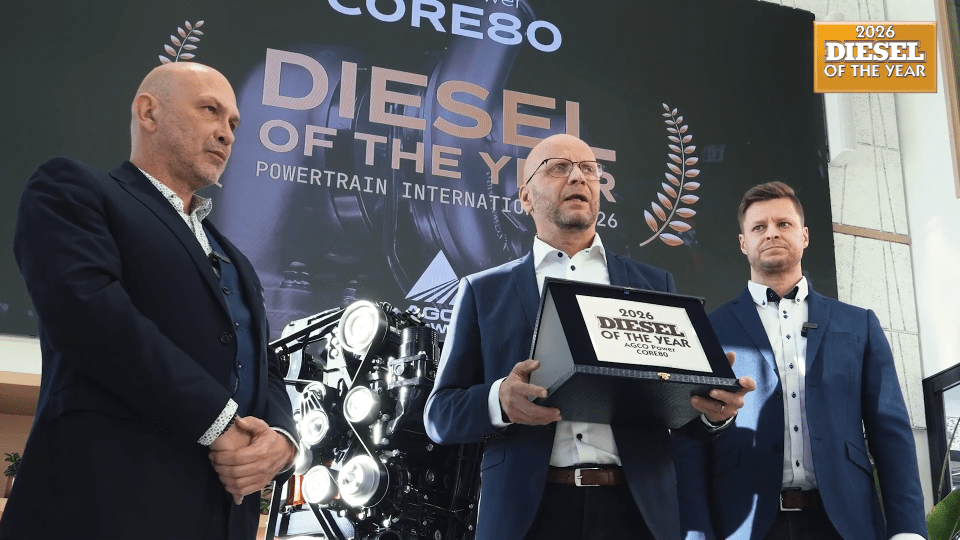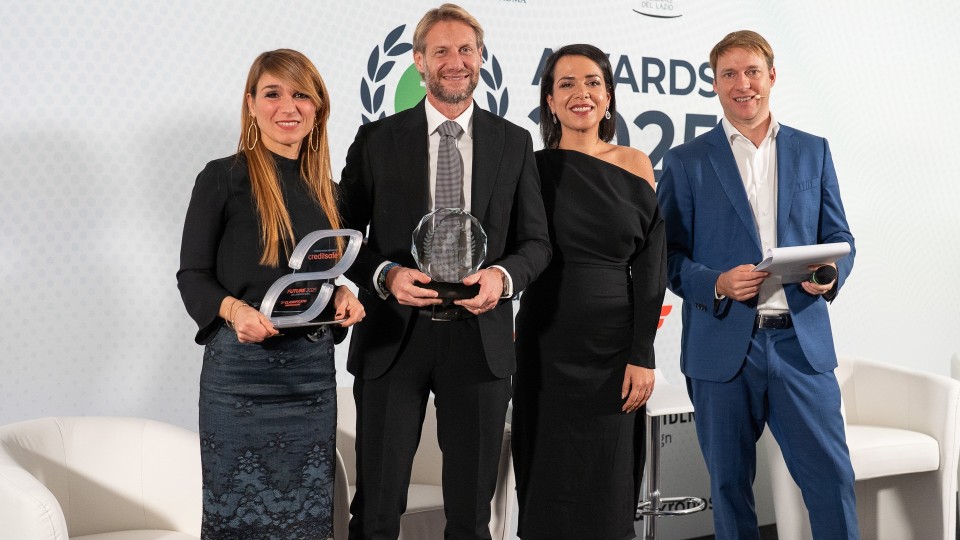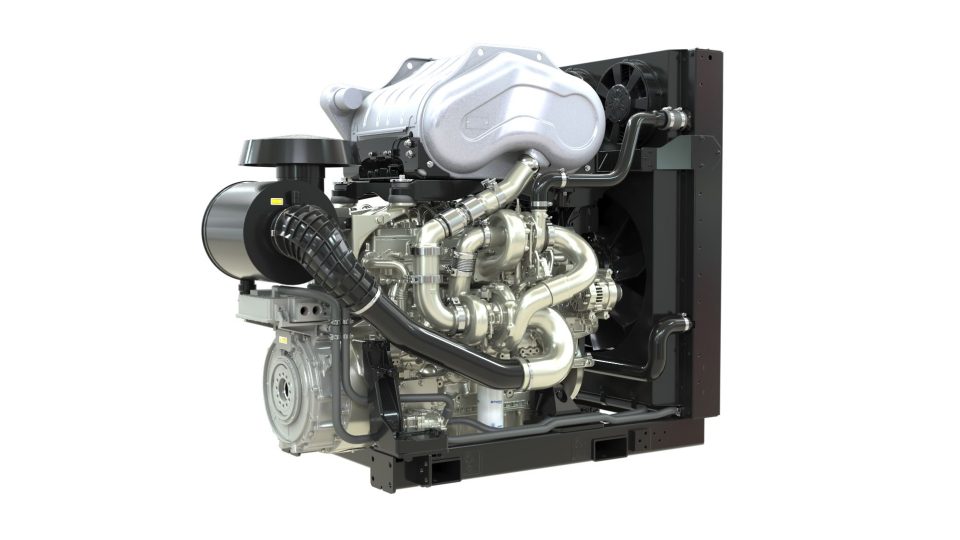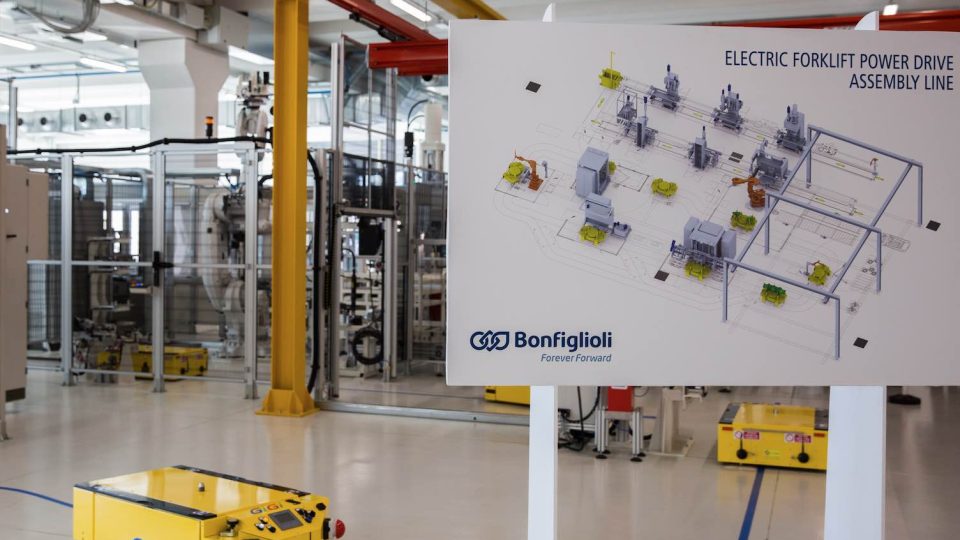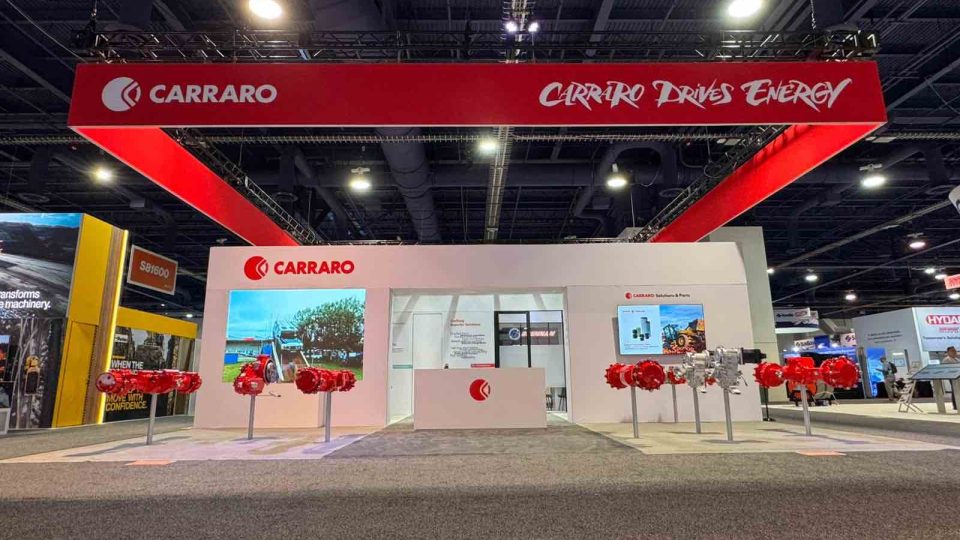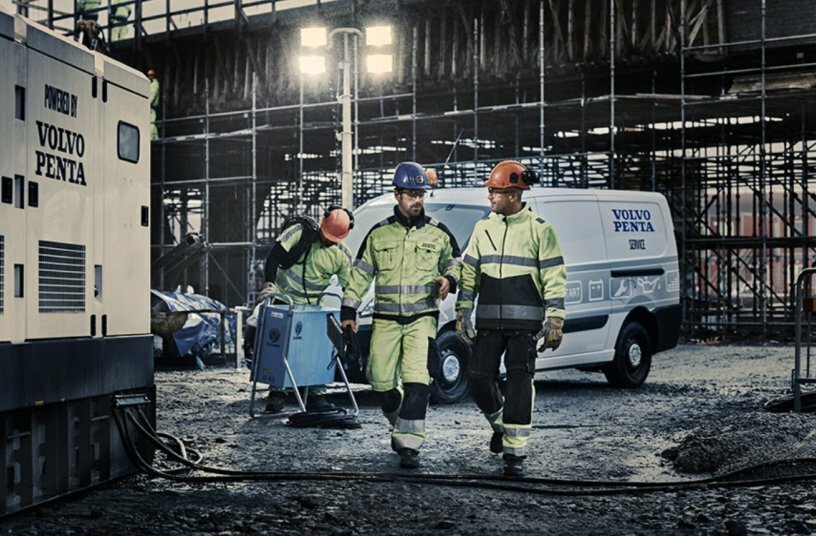Insights and Takeaways from Non-Road Powertrain & Fuels Europe 2025
The Non-Road Powertrain & Fuels Europe event confirmed that no single "silver bullet" exists for off-highway decarbonization. Key discussions highlighted a pragmatic, "energy-agnostic" approach combining advanced ATS with the progressive adoption of neutral alternative fuels
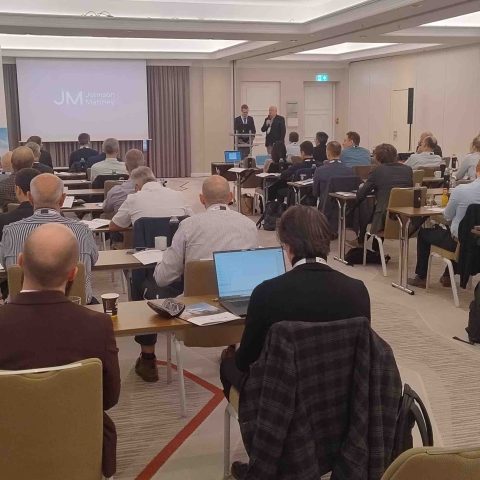
The European edition of the Non-Road Powertrain & Fuels Europe conference, organized by Emissions Analytics, held at the Marriott Hotel in Munich, setting a pragmatic tone for the industry’s path to decarbonization.
The essence of Non-Road Powertrain & Fuels Europe
The core message from the opening day was the need for an “energy-agnostic” approach that prioritizes immediate, tangible progress over the pursuit of absolute perfection.
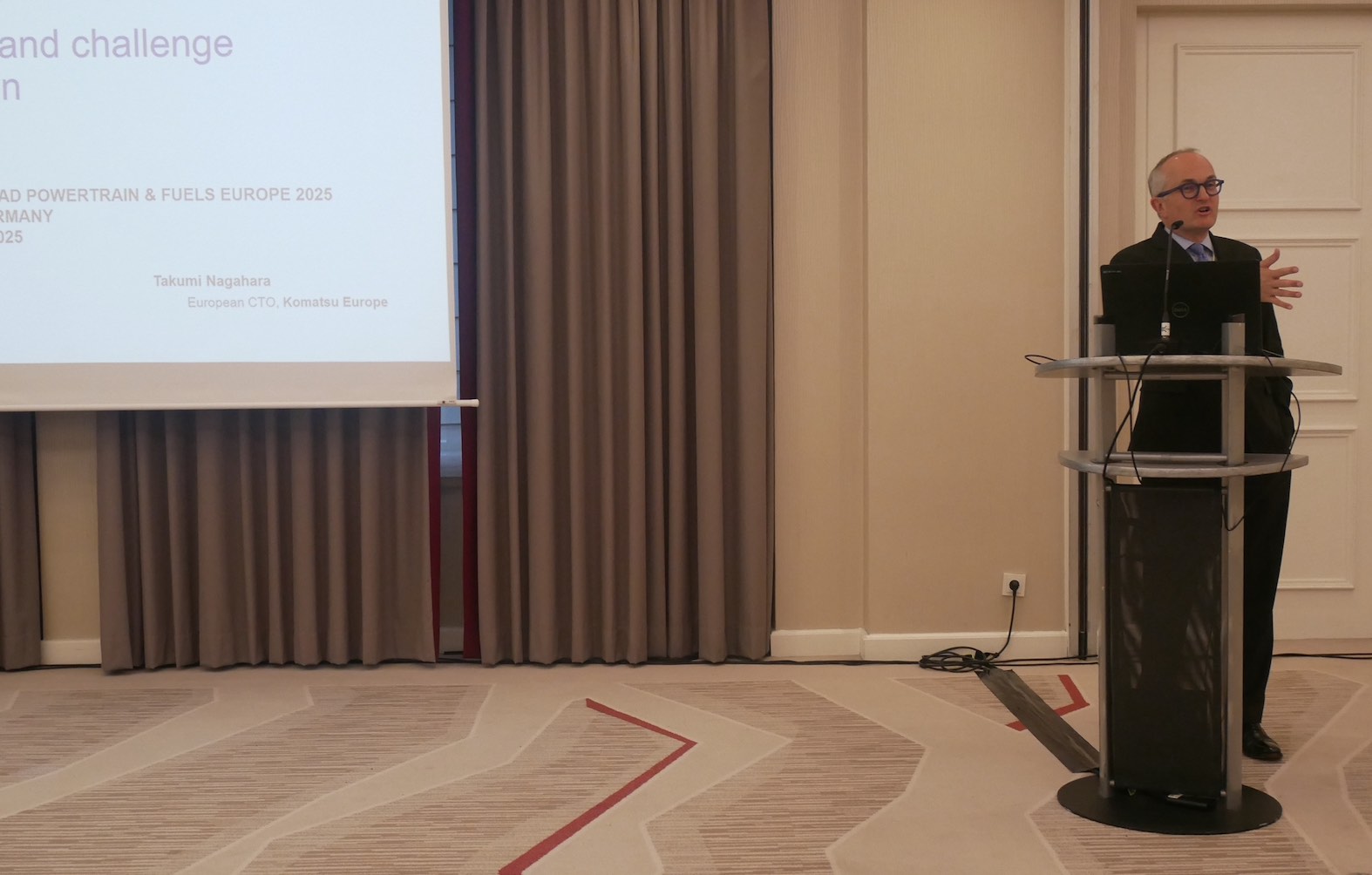
In his introductory speech, Nick Molden, Founder & CEO of Emissions Analytics, addressed the necessity of making electrification work while acknowledging that the transition cannot happen through an immediate, total cessation of fossil fuel use. Molden drew a parallel with nuclear power generation, noting its abandonment despite reaching peak efficiency—a warning against overlooking viable solutions.
Molden emphasized the need for an approach that speaks directly to the industry—those responsible for translating regulatory constraints into product logic. He strongly cautioned against oversimplification, stating:
“We must collectively guard against struck on a roundabout of rethoric and hype. The pursuit of perfection, of “zero emissions”, as the only acceptable goal risks paralysing the sector when real, immediate progress is both possible and urgently needed.“
Principles and Challenges
The concept of being “agnostic” was highlighted as a key tenet of the contributions heard during the day. This is due to the recognition that, even with a focus on aftertreatment, driveline electrification, and alternative fuels, there is no single ‘game changer’ solution for the off-highway sector.
A major challenge underscored during discussions was the role of public institutions. It was stressed that alternative fuels have no viable future without government incentives. This point was supported by the eFuel Alliance, which presented a clear path for a significant price reduction for e-fuels, moving from a current estimated cost of €6.2/L down to an expected €1.2/L with the right policy support.
The consensus highlighted that e-fuels cannot gain traction without a revision of the current “Net Zero” emotional logic. Furthermore, with the current convergence between the German and Italian governments—and thus the focus on e-fuels and bio-fuels—the role of alternative fuels must be decisively relaunched to complement the successful sustainable policies adopted by Nordic countries.
| Session | Speakers |
| Big Picture | Komatsu, Johnson Matthey, FEV, and KGP (Knibb Gormezano and Partners) |
| Energy | eFuel Alliance and BTX Energy |
| Powertrain | Danfoss, RWTH Aachen, and APT Strategic Consulting |
| Electrification | Volvo CE, HEVTEC, and ZEBeyond |
| Emissions Abatement | Liebherr Machines, Dinex, Corning, and Proventia |
| Real-world operator perspective | Testimonials from the rental sector (Zeppelin Rental, The Construction Plant-hire Association, and Plantforce) |
Peeking Behind the Curtain: OEM Strategies from Komatsu and Liebherr
Komatsu needs no introduction, having been on the market for 104 years. Takumi Nagahara, General Manager of European Technical Division/European CTO, explained that decarbonization is already a reality for the company, citing Komatsu’s commitment to a 50% CO2 reduction by 2030 compared to 2010 levels.
He argued that national subsidies and the “zero emissions zone” agenda have been the key drivers for the widespread adoption of electric cars. Nagahara’s assessment is that the same tactics must be pursued in the off-highway sector to accelerate the transition.
Liebherr advocated for its L 566 H, a large wheel loader powered by a hydrogen engine, which was previously presented at the Bauma trade show. The loader is expected to cut CO2 emissions by up to 100 tonnes per year, which is equivalent to the emissions from burning approximately 37,500 liters of diesel.
The Final Verdict
We rely on the conclusions presented by Joachim Demunynck, Sr. Technical and Scientific Manager at AECC (Association for Emissions Control and Climate). We extrapolate several key findings from his presentation:
- Single-dosing SCR systems can already address some shortcomings of Stage V regulation.
- Dual-dosing SCR and Exhaust Gas Heaters are available with further benefits to cover the varying needs of a wide range of NRMM applications, depending on the OEM engine concept and engine-out NOx emission level.
- Together with operation on CO2-neutral fuels including HVO, e-diesel, and H2, the Internal Combustion Engine (ICE) is a future-proof NRMM powertrain option.
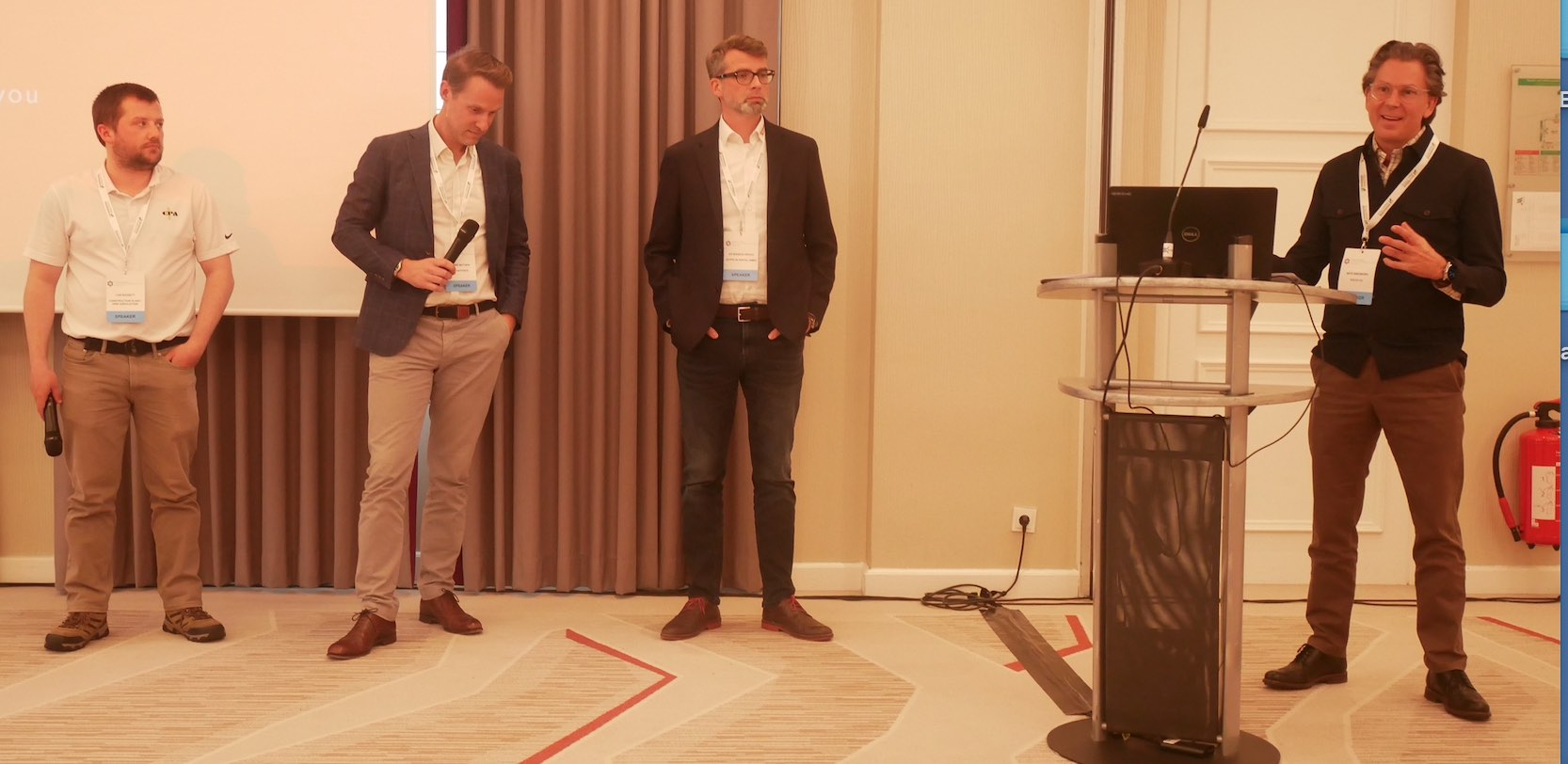
Non-Road Powertrain & Fuels Europe 2026 will be held again in Germany, this time in Frankfurt, on September 22nd and 23rd, 2026.

